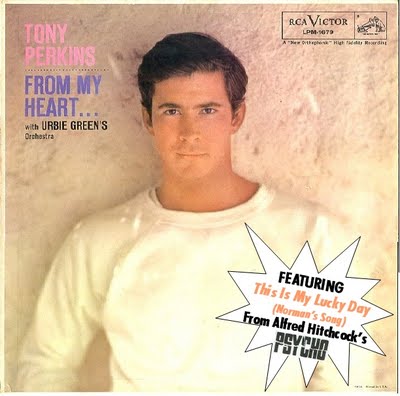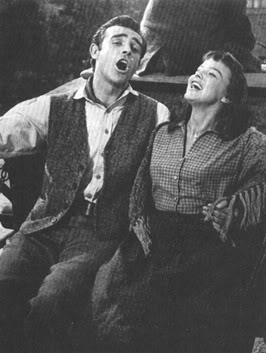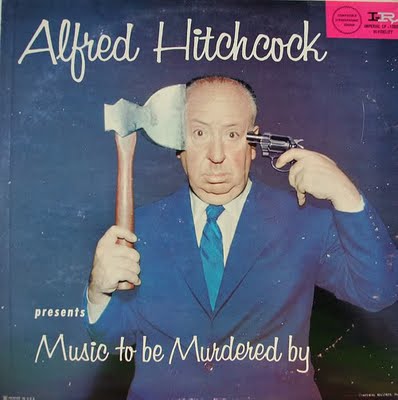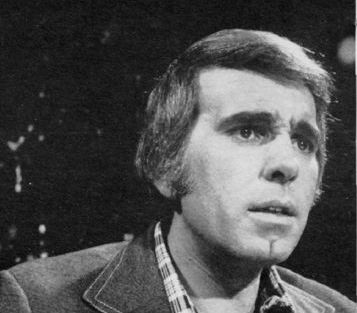|
|
Aug 12, 1992. Jay Leno is involved in a dispute with another late night talk show host. The more things change…
An interview with Bernard Asbell, author of The Book of You, a compendium of curious and marginally interesting statistics. Following Mr. Asbell (who also wrote What They Know About You, which sounds like the exact same book) is an hour of open phones where nearly all callers sound like they’re part of the crowd waiting outside the studio for Jerry Langford. I swear, one call after another, it is the night from radio talk show hell, and you can hear Tom struggle to make either sense or entertainment out of it. Tom’s day didn’t start well, apparently. Something’s wrong, and it’s not just that Tom’s show was to be dropped by WABC-AM in New York. Tom is flustered. Tom gets the year wrong at one moment… and gets his own toll-free call-in number wrong shortly after that. He blames his busy day (“my mind is a bowl of guava jelly”) but does not elaborate as to what might have happened. We once again hear – albeit briefly – about the charms of Snapple Lemonade and Wheat Thins. The breakfast of champions, folks.
Listen or download.
Just discovered a nice appreciation of Tom that I hadn’t seen before. Recommended if you’re a fan.
When you don’t recognize the subject of your sentence, you say things you didn’t mean to say.
Ad from the current issue of Rolling Stone.
 From June 25, 1992. Stock up on Wheat Thins and Snapple Lemonade – here’s Tom taking phone calls for about forty minutes. From June 25, 1992. Stock up on Wheat Thins and Snapple Lemonade – here’s Tom taking phone calls for about forty minutes.
Unemployed? Tom feels your pain. Conspiracy theorist? Somebody tell Ross Perot. Otherwise, Tom seems uncharacteristically crabby with callers. Maybe looking forward to his vacation. You might also cue up your copy of Harry Nilsson’s “Nobody Cares About The Railroads Anymore.”
Listen or download.
Friday, 16 November 1990.
First, an quick interview with Michael Josephson, from The Institute for the Advancement of Ethics, who talks about Charles Keating and the “Keating 5″ savings and loan scandal. Then some phone calls, including one from Tom’s NYC co-worker and weatherman extraordinaire Dr. Frank Field… and one from “Harmonica Man.”
Then, an interview with the daughter of the only comedian who appears in the Bogart classic Casablanca.
That would be Joan Benny, daughter of Jack Benny. Some radio clips from The Jack Benny Show are played, and as usual (sorry) the entire interview is not quite there.
What? You say you didn’t know that Jack Benny appears in Casablanca? Well – and this is breaking news – his daughter thinks he does. The debate rages on at this very moment.
Listen or download.
If you’re a TV person, you know Lois Nettleton as the woman who responds to a shift in the earth’s orbit by perspiring heavily in “The Midnight Sun,” a Twilight Zone episode from 1961.
If you’re an old radio time radio person, you know Lois Nettleton as the third wife of Jean Shepherd. Or maybe from one of her roles on CBS Mystery Theater. Or Maybe from her endless list of TV guest shots. She was a charmer. Wish more of the interview was here; it’s joined in progress.
Included in the Lois Nettleton segment, at no extra charge – a Folgers commercial that channels Bruce Springsteen to sell coffee.
Included in the Nightside Hour – an incredible, thoroughly disgusting anti-drug commercial narrated from the coffin by “Debbie,” a dead teenager. Moral: don’t buy coke from anyone named Junior.
The Nightside Hour is a memorable one, because it marks the debut of a joke/prank, told/pulled by a listener, “Steve in Philadelphia,” which went on to become a running gag Tom Snyder used over and over ever after. It has to do with what a tuna hears.
Listen or download.
When you think of Alfred Hitchcock, you don’t necessarily think top ten records.
But it happened in 1956, when the featured song from Hitch’s remake of The Man Who Knew Too Much – Doris Day’s Que Sera, Sera – scored box-office-boosting radio play by climbing the charts to reach #2 in the US and #1 in the UK. The melody and lyrics were written by Ray Evans and Jay Livingston, whose later work included the theme for the TV series Mr. Ed.
Hitch tried to duplicate his success with his next film, The Wrong Man (1956). But audience reaction to the Edie Adams/Ernie Kovacs duet was negative, so the song was cut and shelved.
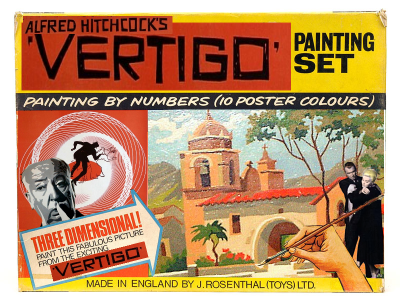 Determined to succeed, Hitchcock brought Billy Eckstine on board early in production on Vertigo (1958) to write the title tune. The scene as shot shows James Stewart taking Kim Novak to the Andar Pedo, a (fictitious) San Francisco Latin nightclub where Eckstine is performing. In the scene, Eckstine sees Stewart’s character and, with a wink as acknowledgment, says “This one goes out to my good friend, Scottie Ferguson.” Eckstine then performs the title song. Determined to succeed, Hitchcock brought Billy Eckstine on board early in production on Vertigo (1958) to write the title tune. The scene as shot shows James Stewart taking Kim Novak to the Andar Pedo, a (fictitious) San Francisco Latin nightclub where Eckstine is performing. In the scene, Eckstine sees Stewart’s character and, with a wink as acknowledgment, says “This one goes out to my good friend, Scottie Ferguson.” Eckstine then performs the title song.
…but once again, Hitchcock ultimately decided not to use the musical interlude. (Hitchcock’s most famous marketing misstep, Vertigo Painting by Numbers, above, was featured in a previous Isn’t Life Terrible post).
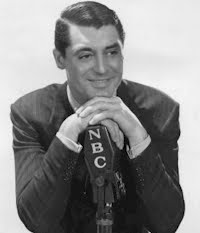 Next up was North By Northwest (1959). It was a classic Hitchcock scene: the bad guys chase Cary Grant into a radio studio, where he is mistaken for the Station ID announcer and hustled out on stage to wait for his cue. Cary sees the bad guys enter the studio and realizes that as long as he’s on stage, the bad guys won’t shoot him. He drags out the station ID as long as possible by singing it, then finally bolting off the stage. No real shot at the top ten for this little improvised “song,” but it shows Hitchcock was still thinking about the potential for musical interludes in his features. Next up was North By Northwest (1959). It was a classic Hitchcock scene: the bad guys chase Cary Grant into a radio studio, where he is mistaken for the Station ID announcer and hustled out on stage to wait for his cue. Cary sees the bad guys enter the studio and realizes that as long as he’s on stage, the bad guys won’t shoot him. He drags out the station ID as long as possible by singing it, then finally bolting off the stage. No real shot at the top ten for this little improvised “song,” but it shows Hitchcock was still thinking about the potential for musical interludes in his features.
Hitchcock tried for the top ten again again with Psycho (1960).
Anthony Perkins’ recording of This Is My Lucky Day (Norman’s Theme) from Psycho never got close to the top 200.
Part of the failure doubtlessly had to do with the fact that the song, originally slated to accompany the infamous “peep-hole’ scene, was cut from the soundtrack.
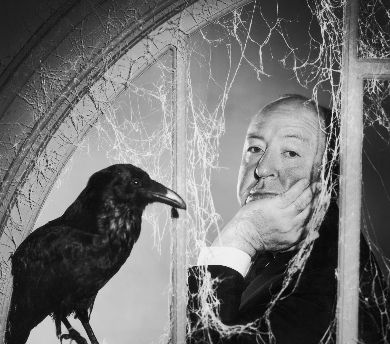
The theme for Hitchcock’s next feature, Tomorrow Never Knows (Love Theme from Alfred Hitchcock’s ‘The Birds’), was eventually recorded by The Beatles, but not released until 1966, three years after the film’s theatrical run.
However, with his next film, Marnie (1964), Hitch was positive he had another hit song on his hands.
He based his positive thoughts on Sean Connery’s testosterone-fueled performance of Pretty Irish Girl in Disney’s Darby O’Gill and the Little People (1959). Hitch initially believed there was no reason his male lead couldn’t handle the recording chores on Marnie. But when Hitchcock learned that Connery’s singing voice in Darby had been dubbed by Brendan O’Dowda, he quickly switched gears and convinced Nat King Cole to record the ballad based on Bernard Hermann’s movie theme.
Capitol Records released Nat King Cole’s Marnie track as a single. It stiffed. Perhaps listeners couldn’t relate to a love song dedicated to the title character of Marnie, a congenital liar and compulsive thief who is blackmailed into marrying Sean Connery.
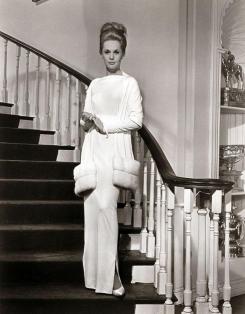 In test footage, Connery lip-synched Cole’s performance, but it didn’t click. Nat Cole went back to the studio and did his best to sing Vertigo with a Scottish accent, but this was even worse. The song was cut from the film. In test footage, Connery lip-synched Cole’s performance, but it didn’t click. Nat Cole went back to the studio and did his best to sing Vertigo with a Scottish accent, but this was even worse. The song was cut from the film.
Pity, too: check out these lyrics:
But your world is lonely
Marnie Oh, Marnie
So lost yet so lovely
Take my hand
And stay with me awhile
Let me try to dry
The tears beneath your smile
Only love can save you Marnie…
At this point, Hitchcock gave up on getting another hit song out of a movie, and took things into his own hands.
 This Sunday, we have an interview with Jack Haley Jr. about The Wizard of Oz. It’s joined in progress – Jack is talking about the ways in which CBS shortened the film’s running time for its yearly airings. It’s actually been posted here before, and is here simply because more of the same show has been found. Not more of Jack Haley Jr., but the hour that follows it. This Sunday, we have an interview with Jack Haley Jr. about The Wizard of Oz. It’s joined in progress – Jack is talking about the ways in which CBS shortened the film’s running time for its yearly airings. It’s actually been posted here before, and is here simply because more of the same show has been found. Not more of Jack Haley Jr., but the hour that follows it.
This second hour begins at around 00:31 and is spent with the colorful and somewhat puzzling Mayor Joseph Alioto, who is to San Francisco as Ed Koch is to New York City.
Listen or download.
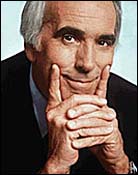 Tom’s first guest is an author who would not deny that his most famous book is rubbish. Tom’s first guest is an author who would not deny that his most famous book is rubbish.
William Rathje deploys a terrific sense of humor during his hour with Tom from July 21, 1992. as he discusses Rubbish!: The Archaeology of Garbage, his book first published in May of 1992 and reprinted in 2001. Rathje is an archeologist who digs into landfills and extracts garbage that has been buried for as long as 40 years. Bill admits that he and his crew don’t always use their facemasks, because “after ten or fifteen minutes, the smell goes away.”
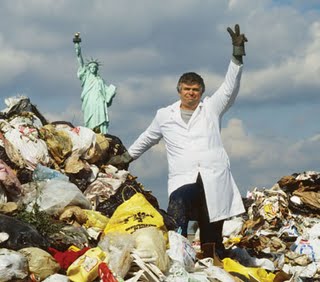 That may be true, and no disrespect to Mr. Rathje, but maybe he and his compatriots should have kept those masks on. I can’t remember anyone coughing while on Tom’s show, but Rathje hacks his way throughout the entire interview, with one bout of coughing so serious-sounding that Tom playfully asks Bill if he’d like to have some oxygen brought in. I’m pleased to report that Mr. Rathje seems to still be alive and, presumably, well. That’s amazing; based the audio impression given by this program, you wouldn’t have given the guy six months. That may be true, and no disrespect to Mr. Rathje, but maybe he and his compatriots should have kept those masks on. I can’t remember anyone coughing while on Tom’s show, but Rathje hacks his way throughout the entire interview, with one bout of coughing so serious-sounding that Tom playfully asks Bill if he’d like to have some oxygen brought in. I’m pleased to report that Mr. Rathje seems to still be alive and, presumably, well. That’s amazing; based the audio impression given by this program, you wouldn’t have given the guy six months.
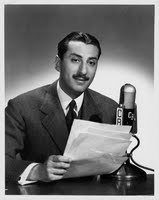 Tom’s guest for the second hour (in an interview that’s nearly complete) is legendary CBS newsman Robert Trout. Trout began working in radio when announcers wore smocks and were selected, in part, on elocution, vocal timbre, and authoritative delivery. Trout’s final assignments were retrospective pieces for NPR, which probably had to make an exception to bring him on board. (I love and support NPR, but suspect they select male announcers based on level of affectation, inappropriate folksiness, wryness, and execution of thoughtful pauses/ability to convey mock surprise). Tom’s guest for the second hour (in an interview that’s nearly complete) is legendary CBS newsman Robert Trout. Trout began working in radio when announcers wore smocks and were selected, in part, on elocution, vocal timbre, and authoritative delivery. Trout’s final assignments were retrospective pieces for NPR, which probably had to make an exception to bring him on board. (I love and support NPR, but suspect they select male announcers based on level of affectation, inappropriate folksiness, wryness, and execution of thoughtful pauses/ability to convey mock surprise).
Listen or download.
When a new kid plops down next to Tom in the sandbox, you can count on him to be welcoming and polite, even when he’s not completely thrilled with the new arrival.
Deborah Norville made the announcement that she would soon be added to the ABC radio sandbox on this day. The key achievement of Norville’s life seems to be her failure on the NBC “Today” television show, where her brief stint was bookended by the long and successful reigns of Jane Pauley, who preceded her, and Katie Couric, who followed her. For quite some time, she adopted the persona of the puzzled yet plucky underdog. (“What did I do wrong?”)
She lasted a year as an ABC radio host. Tom didn’t like her much, which is evident in the interview despite his statements to the contrary. Perhaps Norville is not as disingenuous as she sounds.
In the second hour, Tom is joined by Robin “Lifestyles of the Rich and Famous” Leach. A man who can be trusted, obviously.
For your information – let’s get this straight – there were hidden self-promotional motives in neither Norville’s tasteful People Magazine breast-feeding photo nor Leach’s graphic-but-also-tasteful presentation of a celebrity C-section. No further discussion, please, on these selfless acts that bring important information to the public. And let’s not even mention Tom’s TV show that featured a naked encounter group.
Listen or download.
|
Isn’t Life Terrible? "Isn't Life Terrible" is a Charley Chase short from 1925. The title was derived from a 1924 D.W. Griffith film, "Isn't Life Wonderful?" Other Charley Chase film titles that ask questions are "What Price Goofy?" (1925), "Are Brunettes Safe?" (1927), and "Is Everybody Happy?" (1928). Chase abandoned his titles with question marks for titles with exclamation points during the sound era.
----------------------------------
Isn't Life Terrible moved from Blogger to WordPress in May of 2010. As a result, some links in older posts were broken. If you encounter one, let us know by leaving a comment on the post with the broken link, and we'll move it to the top of our "to-fix" list.
----------------------------------
This is a non-profit, ad-free blog that seeks to promote interest in, and enhance the value of, any and all copyrighted properties (appearing here in excerpt-only form) for the exclusive benefit of their respective copyright owners.
----------------------------------
Links to audio files go to a page where you can listen with a built-in player and/or download the file. If you want to continue to browse the internet while listening, don't close the page - open a new browser window.
|

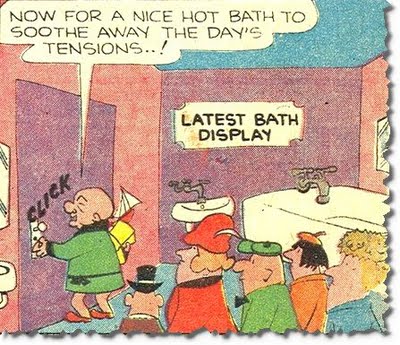
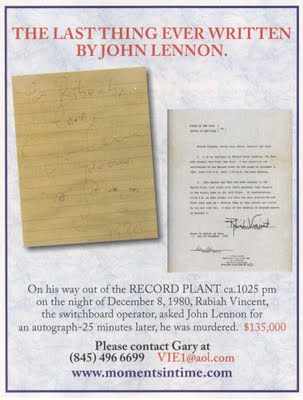




_03-711847.jpg)


